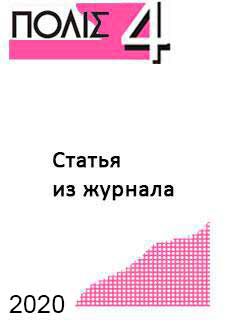Online shop of "Polis. Political Studies" Journal
We in the world, the world in us
Konyshev V.N. Neoclassical Realism in the Theory of International Relations. – Polis. Political Studies. 2020. No. 4. P. 94-111. (In Russ.).
Free!
international relations theory, theory of state international policy, neorealism, neoclassic realism, structuralism, state-centric approach, levels of foreign policy analysis.
The article studies neoclassical realism – one of the most popular trends in the evolution of the theory of international relations. Predominantly found in Western scientific work, it is gaining popularity in Russian studies. However, the conceptual differences, methodology, and status of neoclassical realism amongst other theories remain insufficiently studied. Neoclassical realism is not a complete theory, but a research approach that progresses the realist tradition of IR. Representatives of this approach combine the elements of K. Waltz’s structural realism with empirical research in the spirit of H. Morgenthau’s political realism; at the same time, they refuse to consolidate a unitary understanding of the state, paying significant attention to the subjective aspects of policy-making and to the influence the state’s domestic political attributes have on its foreign policy. This gives reason to consider neoclassic realism as an eclectic theory. However, the more convincing view is that neoclassical realism is an original development of neorealism, complementing Waltz’s theory with an elementary level of analysis of international politics. In a substantial sense, neoclassical realism clarifies such concepts as anarchy, structural influence, the balance of power, and balancing policy, amongst others. The “neoclassics” proposed a model of state foreign policy, which describes the interaction of a set of systemic and elemental factors (domestic political attributes of the state) that affect the state’s foreign policy. In methodology, this approach is distinguished by the desire to operationalize concepts and to develop a priori hypotheses for subsequent verification, using concrete historical research. The heuristic potential of neoclassical realism is associated, first of all, with a successful complement to Waltz’s structural realism, which allows the conditions under which great powers and small states deviate from balancing policies to be studied. As it offers a look at international politics through the prism of the state as an element of the system, neoclassical realism is especially relevant in the era of global rollbacks of state-centric politics.
 English
English Русский
Русский

Reviews
There are no reviews yet.